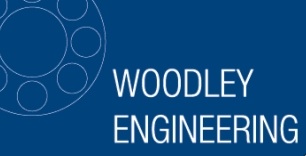 Add My Company
Add My Company
Sign In

When it comes to production line operations, the problem of wear and tear arises on a regular basis. The manufacturer faces the choice of either repairing or replacing a worn out part.
Usually, the decision depends on the cost and the time at hand. Production line breakdowns can lead to inspection bottlenecks, delays, missed deadlines, and more. Taking the right approach to spare parts repair can minimise your expenses and improve output.
How do the costs weigh up for different faults?
Quick Fixes
In case of a circuit board or integrated component failure, for example, it’s usually easier to get a new one. The replacement and the repair costs are similar in such cases.
However, there are many occasions when a replacement spare part just doesn’t exist. The original equipment manufacturer (OEM) may have long gone out of business or stopped producing this particular equipment. In such a case, a quick repair (if possible) on the spot may give the production line a few days or at least hours of continued operation while the operator looks for a solution.
Third party manufacturers can create replacement spare parts for most equipment even if the OEM doesn’t produce them anymore.
Quick on-site repairs require minimal investment. Ordering a new spare part from a third-party manufacturer is often less costly and faster than buying it from the OEM, even when that is possible, giving a new lease of life to expensive and possibly irreplaceable machines.
Serious Failures
When it comes to complicated breakdowns involving multiple components, you are faced with two choices. You can either repair the equipment or buy a new one. Your costs depend on which components have failed, their availability and the time needed for repair, vs the cost of having the machine out of action.
For essential equipment it may be cheaper simply to swap it out because of the cost of lost production, even though a repair may look the less expensive option on paper.
While doing repairs you may need to source multiple parts. If going through your OEM, the machine’s warranty status makes a big difference to price. It is always more expensive to repair a machine that is out of warranty. However, you can often save time and money on out-of-warranty repairs by ordering identical parts from a third-party manufacturer, especially if the OEM is not readily available.
When Is Repair Out Of The Question?
An experienced technician should be able to tell when production line machine parts are no longer suitable for repair. If you have already repaired the machine several times and still see a problem with the output, it’s better to opt for a replacement.
Old production line equipment can stay as good as new for years as long as you make the repairs and replacements on time. Taking the right approach to servicing can keep the machine functioning longer than if you allow a damaged part to continue working. Planned maintenance can prevent the inconvenience and downtime of line replacement or extensive repairs.
How costly is the repair of production line machine parts? It depends on how well you know your equipment and whether you can make the right decision on time.
Find Out More
At Woodley Engineering, we manufacture spare parts for various equipment regardless of the industry. We can help you save money on complex repairs by offering reasonably priced replacement solutions – at lower prices than your OEM in most cases.
For more information on How Costly Is The Repair Of Production Line Machine Parts? talk to Woodley Engineering (Maidenhead) Ltd
Enquire Now
List your company on FindTheNeedle.
